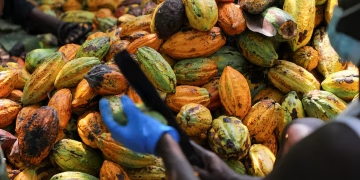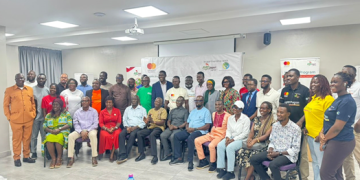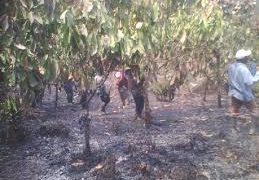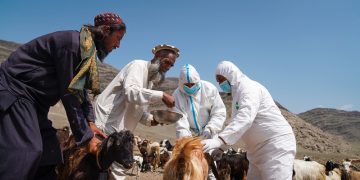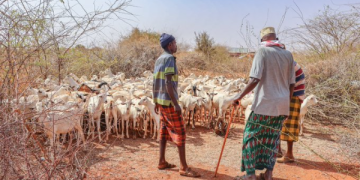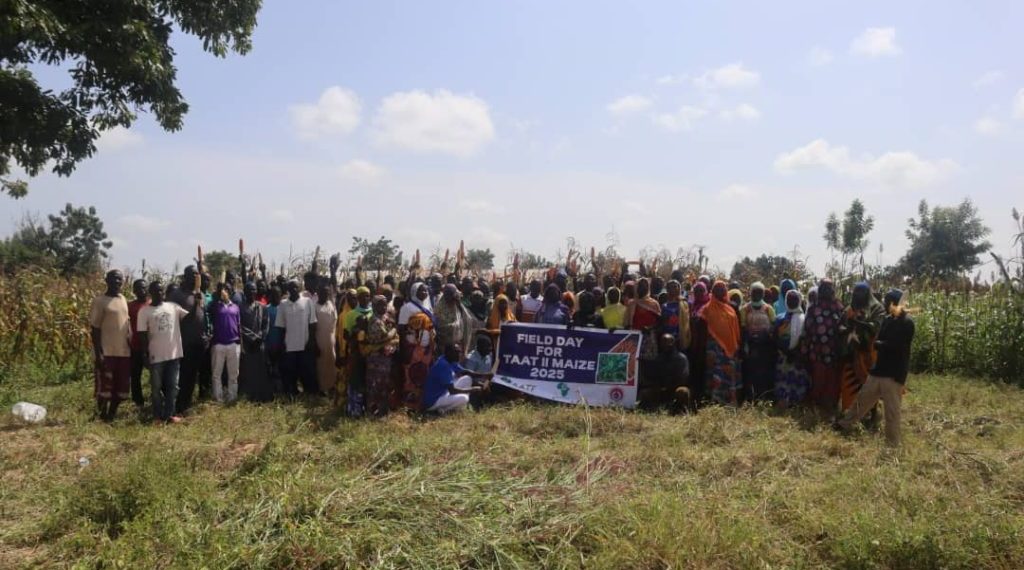The Council for Scientific and Industrial Research – Savanna Agricultural Research Institute (CSIR–SARI), in collaboration with the Ministry of Food and Agriculture (MoFA), has unveiled four new maize varieties designed to improve yields, nutrition, and income for smallholder farmers in northern Ghana.
The new varieties — CSIR Dimaali-Engee and CRI Abebe (both Pro-Vitamin A maize), CSIR Adubi-Boyo (a Quality Protein Maize hybrid), and CSIR Denbea, a high-yielding and climate-resilient hybrid — were showcased during a farmers’ field day held at Tolon in the Northern Region.
The event, led by Dr. Isaac Kodzo Amegbor, a maize breeder at CSIR–SARI, brought together farmers, agro-input dealers, seed producers, and agricultural officers from Tolon and neighbouring districts to observe the new varieties in demonstration plots.
Dr. Amegbor explained that the initiative forms part of the Technologies for African Agricultural Transformation (TAAT) programme, which seeks to unlock Africa’s agricultural potential through the promotion of proven, high-impact technologies tailored to smallholder farming systems.
He said the improved maize lines were the result of years of intensive breeding and field trials conducted by CSIR–SARI to address persistent challenges such as low yields, drought stress, declining soil fertility, and malnutrition.
Funded by the African Agricultural Technology Foundation (AATF) under the TAAT II Maize Compact, the project aims to strengthen Ghana’s food and nutrition security by making high-performing maize varieties accessible nationwide.
“Our mission as researchers is to ensure that farmers have access to improved, high-yielding, and nutritious maize varieties that perform well under local conditions,” Dr. Amegbor said.
“When farmers are satisfied with their harvests, it motivates us to keep developing technologies that truly work for them.”
He added that CSIR–SARI, in partnership with AATF, will soon organize free training sessions for interested farmers and seed producers to build their skills in quality seed production and management.
Madam Victoria Basim, an Agricultural Extension Agent in the Tolon District, praised the collaboration between CSIR–SARI and MoFA, describing it as a vital step toward improving household food security, nutrition, and incomes.
“We are delighted to see farmers embracing these new varieties,” she said. “With proper agronomic practices, they can achieve higher yields while improving the nutritional value of their produce.”
Mr. Iddrisu Muniru Mustapha, Crops Officer at the Tolon District Department of Agriculture, also commended the initiative, noting that the introduction of improved maize hybrids contributes significantly to sustainable agricultural transformation in the Northern Region.
The demonstration field, hosted by Mr. Ziblim Adam, a lead farmer from Tolon, provided an opportunity for participants to learn practical lessons on the performance of the new varieties.
“I have seen a big difference with these new seeds,” Mr. Adam shared. “The plants are more vigorous, the cobs are larger, and the yields look very encouraging. I’m eager to plant them again next season.”
Madam Zelia Mohammed, another participant, highlighted the nutritional benefits of the Pro-Vitamin A maize, noting its importance for family health.
“As mothers, we are happy to see maize that is not only high-yielding but also nutritious for our children. I will definitely grow the Dimaali-Engee variety next year,” she said.
The field day also featured hands-on training sessions on best agronomic practices, including plant spacing, population density, crop management, and post-harvest handling.
The initiative forms part of CSIR–SARI’s broader commitment to advancing climate-smart, nutrition-sensitive, and farmer-centred agriculture that supports national food security and economic growth.
Sorce : GNA


















